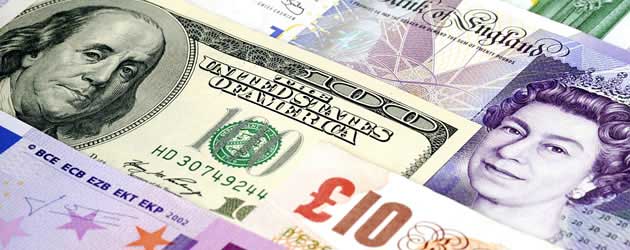
UK Retail Sales are predicted to have expanded by 0.6% in July, which would mark a massive improvement on June’s score of 0.2%. The figure, released later this morning, is expected to show a continuation of the recent uptick in UK data that has allowed the Pound to soar versus the majority of its currency rivals.
Last week the British Retail Consortium said, in a separate report, that sales volumes were the highest during July for any month since August 2006. With Britons celebrating the birth of the Royal Baby and Andy Murray’s landmark victory at Wimbledon both falling during July’s heat wave it is entirely likely that the Office for National Statistics will release a similarly strong Retail Sales figure for July.
The Pound advanced by around 0.7 cents against the US Dollar yesterday and 0.6 cents against the Euro as UK Unemployment data and the Minutes from August’s Bank of England monetary policy meeting both pointed towards an earlier-than-expected end to ultra-low interest rates.
Since the beginning of 2009 the benchmark UK interest rate has remained at a record-low 0.50% as the UK Central Bank has attempted to foster growth in the economy through low lending rates, which, in theory, should lead to enhanced credit growth. It has taken a long time coming, but recent economic indicators in the UK suggest that the recovery is starting to take shape, however, BoE Governor Mark Carney has repeatedly commented that the current revival is weak by historical standards.
In order to ensure that the latest wave of optimism does not peter out, Carney took the unprecedented step last week of guaranteeing low interest rates until the Unemployment Rate falls to 7.0%. However, in order to retain flexibility, Carney announced that if inflation persists in overshooting the Bank’s 2.0% in the medium term then the 7.0% Unemployment threshold will be “knocked out” and the benchmark interest rate will rise, on the condition that the BoE deem it necessary.
In light of Carney’s comments each Unemployment and Consumer Price Index data release now takes on an amplified importance. The CPI inflation print for July declined mildly from 2.9% to 2.8%, but with price pressures still way above target the Pound was not punished significantly. Yesterday’s Unemployment print showed that the headline jobless rate remained at 7.8%, however, investors reacted positively to the report because it featured an unexpected 69,000 rise in employment and a steep -29,200 drop in Initial Jobless Claims.
The Pound was also boosted by the BoE Minutes, which showed that one policymaker, Martin Weale, was not happy with the duration that interest rates are projected to stay low for. Weale wished to bring forward the date that the benchmark rate is hiked, and in reaction to the news markets brought forward their rate hike bets from 2016 to 2015. This boosted the appeal of UK Gilts and subsequently Sterling rallied against its two closest rivals, the Euro and the US Dollar.
It speaks volumes to the reputation of the Pound at the moment that GBP/EUR managed to rally through resistance levels at 1.1700 on the day that the Eurozone was officially reported to have emerged from a six-quarter-long recession. Eurozone GDP printed at a better-than-expected 0.3% in the second quarter, but with investors still wary of future easing measures from the European Central Bank the single currency suffered losses against the Pound and US Dollar.
GBP/USD reasserted itself above 1.5500 as US Producer Prices stagnated during July, raising concerns that this afternoon’s influential Consumer Price Index result might also disappoint market expectations. The Federal Reserve has noted on many occasions in the past that soft inflation could have a negative effect on US GDP and therefore could persuade the US Central Bank to continue with its $85 billion a month quantitative easing programme. Asset purchases are seen to harm the US Dollar by reducing the profitability of holding US Treasuries and as such any indication that QE3 may continue at its current pace is seen as damaging to the ‘Greenback’.

Comments are closed.